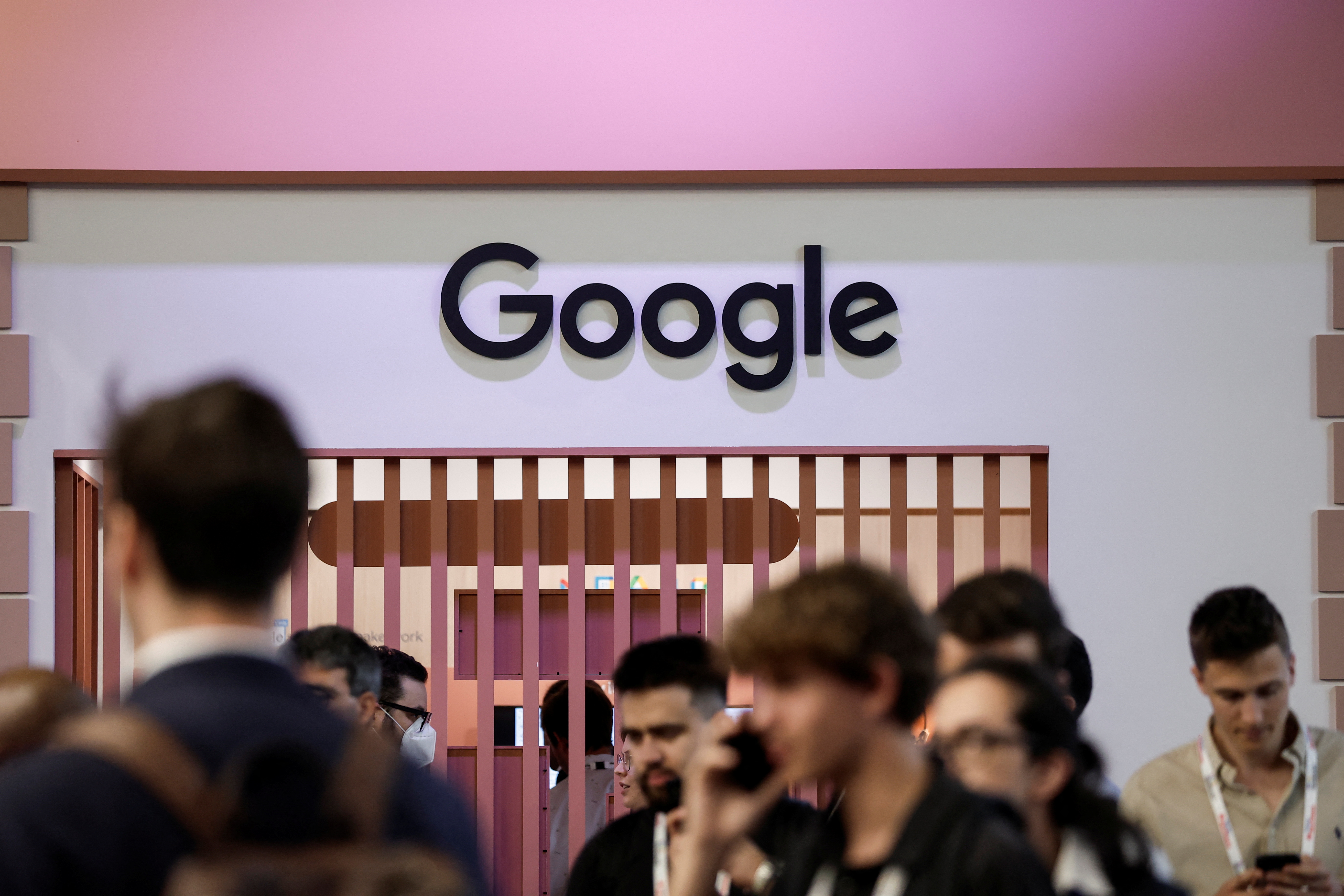U.S. targets Google's online ad business monopoly in latest Big Tech lawsuit
EIGHT STATES IN LAWSUIT
Eight states joined Tuesday's lawsuit, including Google's home state of California. California State Attorney General Rob Bonta said that Google's practices have "stifled creativity in a space where innovation is crucial." Colorado Attorney General Phil Weiser said that Google's dominance had led to higher fees for advertisers and less money for publishers with ad space to offer. "We are taking action by filing this lawsuit to unwind Google’s monopoly and restore competition to the digital advertising business," he said in a statement. Google shares were down 1.9 percent on Tuesday.
[1/2] A logo of Google is seen at its exhibition space, at the Viva Technology conference dedicated to innovation and startups at Porte de Versailles exhibition center in Paris, France June 15, 2022. REUTERS/Benoit Tessier
In addition to its well-known search, which is free, Google makes revenue through its interlocking ad tech businesses. The government asked for the divestiture of the Google Ad Manager suite, including Google's ad exchange, AdX. Google Ad Manager is a suite of tools including one that allows websites to offer advertising space for sale and an exchange that serves a marketplace that automatically matches advertisers with those publishers. Advertisers and website publishers have complained that Google has not been transparent about where ad dollars go, specifically how much goes to publishers and how much to Google. The lawsuit raises concerns about certain products in the ad tech stack, where publishers and advertisers use Google's tools to buy and sell ad space on other websites. That business was about $31.7 billion in 2021 or 12.3 percent of Google’s total revenue. About 70% of that revenue goes to publishers. An ad tech divestiture "may not be a game changer but it could be sneaky important to Google's ad targeting capability," said Paul Gallant with the Cowen Washington Research Group. "It connects to all of Google's other businesses and ties them together. I think Google might be more concerned about losing ad tech down the road than people might think," Gallant said. The company made a series of purchases, including DoubleClick in 2008 and AdMob in 2009, to help make it a dominant player in online advertising.'PROJECT POIROT'
While Google remains the market leader by a long shot, its share of the U.S. digital ad revenue has been eroding, falling to 28.8% last year from 36.7% in 2016, according to Insider Intelligence. The Justice Department asked for a jury to decide the case, which was filed in the U.S. District Court for the Eastern District of Virginia. The lawsuit lays out a number of Google's attempts to dominate the advertising market. The complaint discussed header bidding, which was a way that companies could bypass Google to bid on ad space on websites. It lays out a series of projects including one dubbed "Project Poirot" named after Agatha Christie’s master detective, Hercule Poirot. The project "was designed to identify and respond effectively to ad exchanges that had adopted header bidding technology."The 149-page complaint said Google doubled down after Project Poirot's initial success in manipulating its advertisers' spending to reduce competition from rival ad exchanges. Rivals AppNexus/Xandr lost 31% of DV360 advertiser spending, Rubicon would lose 22%, OpenX would lose 42%, and Pubmatic would lose 26%, the complaint said.
Reporting by Diane Bartz and David Shepardson; additional reporting by Sheila Dang; editing by Chris Sanders and Grant McCool
Related:










 https://youtu.be/KjMLcM5MDsw
https://youtu.be/KjMLcM5MDsw